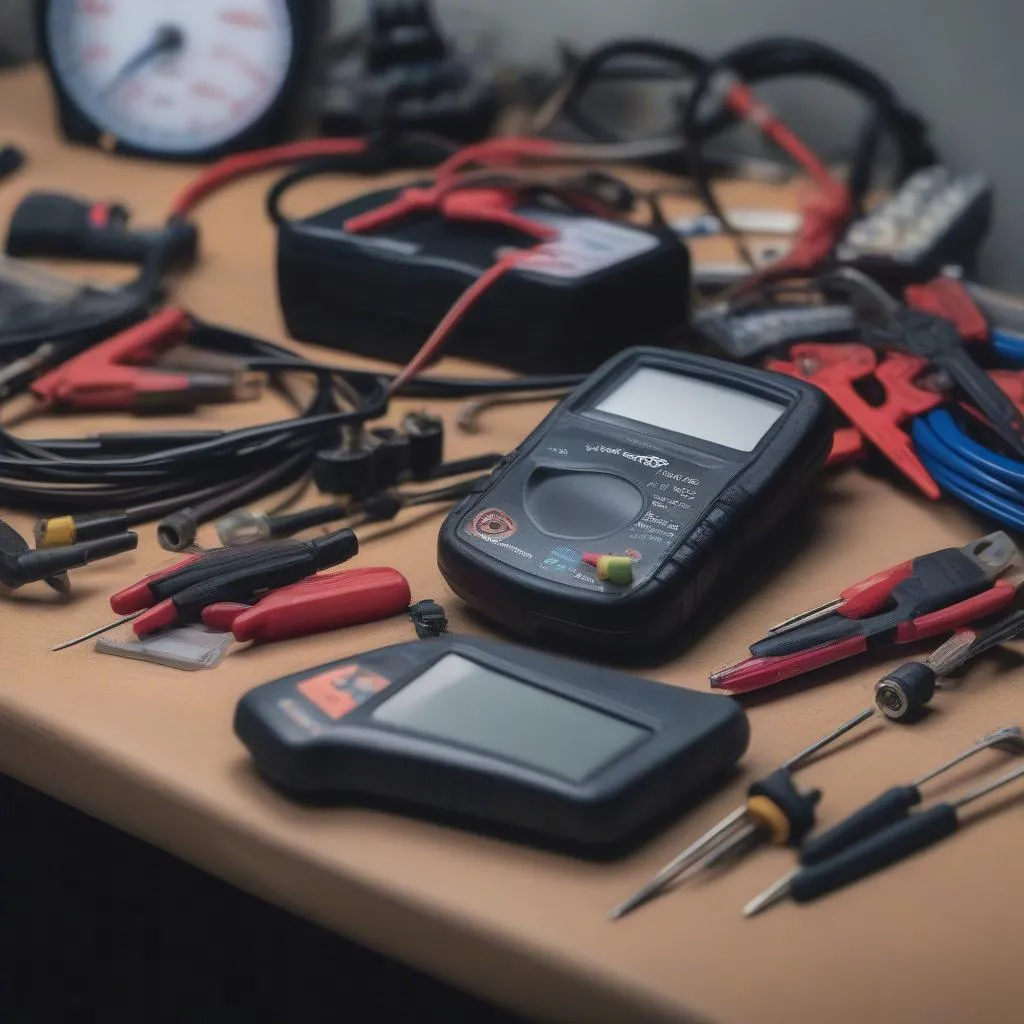AdBlue is a crucial component of your 2014 VW Passat’s emissions system. It helps reduce harmful nitrogen oxide (NOx) emissions by reacting with them in the exhaust system. However, if your AdBlue system malfunctions or runs low, you may need to reset it to restore proper functionality. This guide will walk you through the process of resetting AdBlue on your 2014 VW Passat, covering the steps and precautions involved.
Understanding AdBlue and Its Reset
AdBlue is a urea-based solution that is injected into the exhaust system of diesel vehicles to reduce NOx emissions. The system works by converting NOx into harmless nitrogen and water vapor. When your AdBlue tank runs low, the car’s computer system will typically display a warning message on the dashboard. This message might also include a message to refill the AdBlue tank.
Why You Might Need to Reset AdBlue
While AdBlue is crucial for emissions control, sometimes you may need to reset the AdBlue system even after refilling the tank. Common reasons for needing a reset include:
- Low AdBlue level warnings: If your AdBlue level drops below a certain threshold, the system may need to be reset after refilling.
- AdBlue system errors: If the AdBlue system encounters an error, such as a sensor malfunction or a blocked nozzle, resetting the system might resolve the issue.
- After AdBlue tank replacement: If you replace the AdBlue tank, it’s usually necessary to reset the system to recognize the new tank.
How to Reset AdBlue on a 2014 VW Passat
Resetting AdBlue on a 2014 VW Passat can be done in several ways:
1. Using the Onboard Computer
- Step 1: Turn the ignition on, but do not start the engine.
- Step 2: Press and hold the “OK” button on the steering wheel until the menu appears.
- Step 3: Navigate to the “Settings” or “Vehicle” menu.
- Step 4: Look for an option called “AdBlue” or “AdBlue Reset”.
- Step 5: Select the “Reset” option and follow the on-screen instructions.
- Step 6: The system should automatically reset after a few moments.
2. Using a Diagnostic Scanner
- Step 1: Connect a compatible diagnostic scanner to the vehicle’s OBD-II port, typically located under the dashboard.
- Step 2: Launch the scanner software and navigate to the AdBlue system.
- Step 3: Locate the “AdBlue Reset” or “AdBlue System Reset” option.
- Step 4: Follow the prompts on the scanner to reset the system.
3. Seeking Professional Assistance
If you are unsure about resetting AdBlue or have any concerns about the system’s functionality, it’s best to consult a qualified mechanic or VW dealership. They have the expertise and tools to diagnose any issues and perform the reset safely.
“It’s best to be cautious when dealing with AdBlue systems,” says automotive specialist, Mark Johnson. “Even minor errors can lead to significant issues with emissions control. If you’re unsure, always seek professional advice.”
Frequently Asked Questions (FAQ)
Q: Can I reset AdBlue without a scanner?
A: In some cases, you might be able to reset AdBlue using the onboard computer. However, this method may not be available on all vehicles.
Q: Is it safe to drive with a low AdBlue warning?
A: It is not recommended to drive with a low AdBlue warning for extended periods. Continued driving with low AdBlue could lead to engine problems and potentially damage the emissions system.
Q: How often should I reset AdBlue?
A: You should only reset AdBlue when necessary. If your system is functioning correctly, a reset may not be needed.
Q: What if I reset AdBlue and the error message persists?
A: If the error message persists after resetting AdBlue, it’s likely a sign of a deeper issue within the system. Seek professional help to diagnose and repair the problem.
Conclusion
Resetting AdBlue on a 2014 VW Passat is relatively straightforward, but it’s important to follow the correct steps and take necessary precautions. If you encounter any issues or are unsure about the process, seek professional help from a qualified mechanic or VW dealership.
Maintaining your AdBlue system ensures optimal emissions control and prevents potential engine problems. Remember to follow the recommended maintenance schedule for your VW Passat and monitor the AdBlue level regularly to keep your vehicle running smoothly and efficiently.

